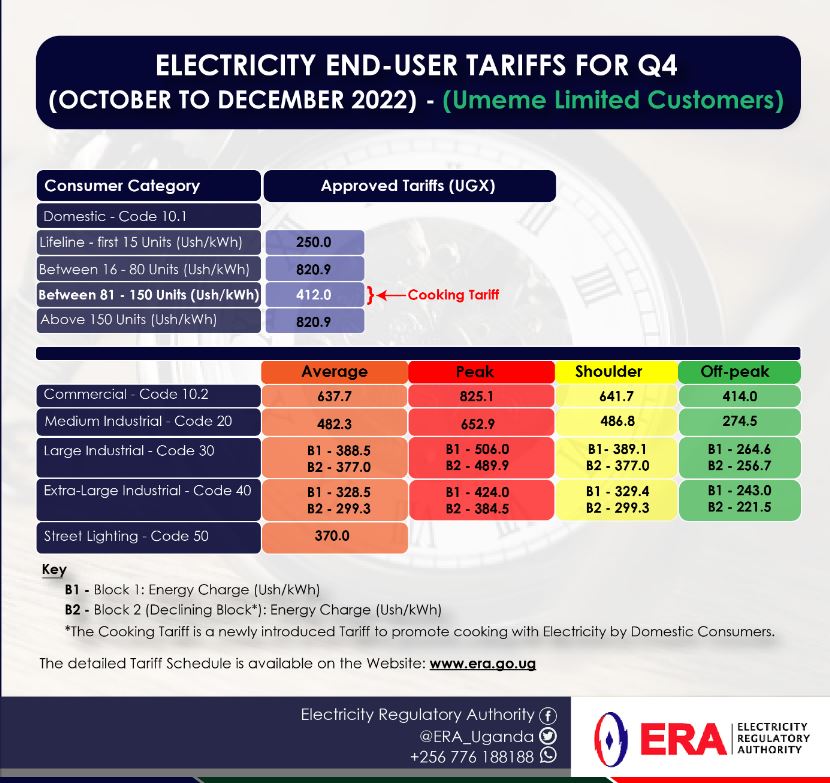Although the Electricity Regulation Authority (ERA) acknowledges all power consumers, the demand for electricity by manufacturers remains 70%, that of other categories of consumers stands at 30%, yet the disparity in the tariffs remains a contentious issue, especially among consumers.
Under Sections 10 and 75 of the Electricity Act 1999 as Amended, ERA approves the schedule of End-user tariffs to be adjusted by Electricity Suppliers, among them Umeme and WENRECO as and when necessitated by factors in the economy.
According to information from ERA, the billing period for October – December or the Fourth Quarter of 2022, and April-June or the Second Quarter, manufacturers paid lower tariffs compared to other categories of power consumers, both domestic and commercial.
In the current quarter, domestic consumers are charged Shs250 for the first 15 units and the cost often triples or quadruples if the consumers use between 16 to 80 units.
In this case, a unit costs Shs820.9, although it gets reduced to Shs412 if the consumer uses 81-50 units and then rises to Shs820 if the consumer uses beyond 150 units.

Whereas for commercial consumers, in the current quarter, a consumer pays Shs828 during peak hours and Shs414 during off peak hours, on average paying Shs637.7 per unit.
In the same quarter, Medium Industrial Consumers pay Shs652.9 per unit during peak hours and Shs274.5 during off peak hours.
Manufacturers’ Tariffs
According to ERA, in the current quarter, Medium Industrial Consumers pay Shs652.9 per unit during peak hours and a lower figure of Shs274.5 per unit during off peak hours.
On the other hand, large industries in this quarter are paying Shs506 per unit during peak hours and Shs264.6 during off peak hours.
As such, this category enjoyed lower rates in the second quarter compared to other consumers, because the paid Shs395.7 per unit during peak hours and Shs214.7 per unit during off peak hours.
While explaining this disparity, Eng. Ziria Tibalwa Waako, the ERA Executive Director, said during the recently held Inaugural ESI Local Content Forum, that this is aimed at spurring economic growth.
Speaking during the Forum which ERA held together with the Public Procurement and Disposal of Public Assets (PPDA), Uganda Manufacturers Association (UMA) and Uganda National Bureau of Standards (UNBS), Waako, who was addressing issues raised by stakeholders about the difference in tariffs, said this is a deliberate move by government to attract more manufacturers.
“This is a deliberate strategy by the government aimed at stimulating economic growth as more industries will be attracted to the sector,” Eng. Waako said.
She noted that the perceived favoritism for manufacturers is also hinged on the fact that manufacturers use power to produce products that support other sectors of the economy.
“Giving manufacturers power is good for economic development because they utilise the power to produce products for other sectors. They use it for value addition and they are creating employment for Ugandans,” she explained.

